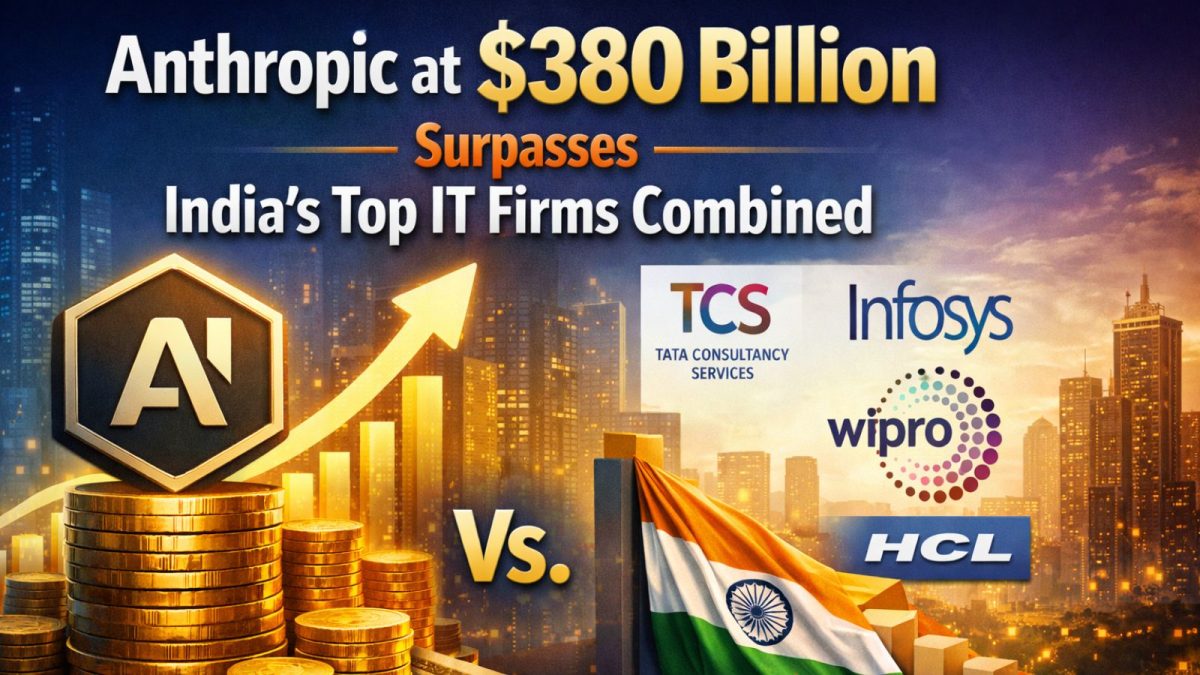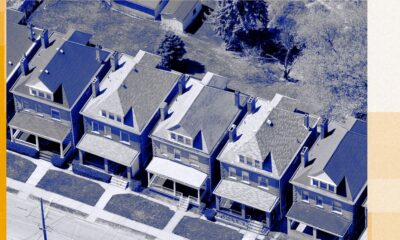Business
Real estate titan Barry Sternlicht says he will ‘have to’ drop employees in favor of AI

A version of this article first appeared in the CNBC Property Play newsletter with Diana Olick. Property Play covers new and evolving opportunities for the real estate investor, from individuals to venture capitalists, private equity funds, family offices, institutional investors and large public companies. Sign up to receive future editions, straight to your inbox.
Billionaire Barry Sternlicht, chairman and CEO of Starwood Capital Group, is a legendary, legacy real estate investor. Brendan Wallace is an entrepreneur who co-founded Fifth Wall, a venture capital firm investing in property technology and decarbonizing real estate. The pair first met in the gym. Now, Wallace can say Sternlicht is a mentor – as well as a Fifth Wall investor – and Sternlicht jokes that Wallace is his trainer.
Together they gave CNBC Property Play a rare glimpse into how old-school commercial real estate investing is pivoting to a new tech-driven world order and how that new world order still relies on lessons learned in the past.
Here are some of the highlights from the conversation, edited for clarity and length:
On CRE investing
Sternlicht: We endured a 500 basis point, fairly rapid increase in rates, and most people who were invested had to pay some price for that, whether the yields on property went up or they weren’t properly hedged. Your costs went up, your expenses, and they drained a lot of cash flow from assets that might have gone into fixing the assets up. That’s behind us now, and there’s no doubt that interest rates are going down. … In May of next year, Jerome [Powell] will be out [as Federal Reserve Chairman], and nobody’s getting that job without agreeing to lower rates.
I think they should lower rates. I think inflation that we’re seeing is tariff related. It will continue. It’ll get worse, probably, in the fourth quarter, when the new inventories hit the shelves and the tariffs can no longer be ignored.
Wallace: The rate increases that Barry was mentioning, those impacted prop tech definitionally, because all tech companies, all loss-making businesses, rerated all at the same time. And at the same time, the demand from commercial real estate stopped.
I would say an overlay on top of it was also that a big part of where real estate companies were investing in the last four years was around decarbonization efforts, so trying to conform to new carbon neutrality laws … and anticipating this kind of wave of decarbonization. And I feel like with [President Donald] Trump‘s election, it kind of felt like they got a hall pass, certainly for four years.
On AI and data centers
Sternlicht: We’ve probably got $20 billion dedicated to [the data center] space. I think it’s a different issue than you think. Most of us don’t build until we get a hyperscaler lease. So we get the lease from Amazon, Microsoft, Google, Oracle. What we’re watching now is the credit worthiness of the tenant, and particularly Oracle, because Oracle is doing all these deals back-ended to [ChatGPT], and Chat is a startup that doesn’t make money and requires hundreds of billions of dollars to grow to the scale they want to be.
There’s no question AI is going to change the entire world and do it much faster than anything we’ve ever seen before, much faster than the internet, certainly faster than the Industrial Revolution. That is terrifying to me. I mean, I’m not so complacent. I look at … how we spend money, and what I can do with AI agents that I do with humans today, and it’s terrifying for the people. I think we have to let people go, right? Jobs of 15 people can be done with a chatbot that costs me $36 a month.
Wallace: I was trying to trace all these pretty Byzantine and somewhat incestuous commitments that are happening between the large tech companies, between the digital infrastructure providers, and it’s actually very hard to trace who’s going to ultimately pay for it all, but ultimately it has to be paid for in the economy.
The way to just acid test whether it makes sense is if you looked at the amount of AI compute that will be required to fill all the data centers that are in production or have been announced to go into production, and then you assume that the tech companies have to make some profit on top of that to justify it, which they’re not today, but let’s assume they have to. Take any margin you want, assume that’s the revenue that’s then therefore flowing to large language models and AI. What percent of U.S. GDP would that be today if you ran that math? My fear is that it might be like 120% of U.S. GDP.
On their next bets
Sternlicht: We’re heavily investing in Europe, actually. Not here. They’ve done the stimulus package. They have low rates. They don’t have, really, inflation. They don’t have tariffs. It’s amazing, having returned from Europe and the Middle East, I can buy everything cheaper in Europe than I can here now.
Wallace: New York City. People overestimate the durability of these political vibe shifts. Within two years of electing Trump, we elected [Zohran] Mamdani to run New York, and I just think these things move dialectically. Over the long term, New York is going to be super valuable. So if I were a betting person, I didn’t have to make a return in the next four years, I would bet on New York.
Business
Anthropic At $380 Billion Surpasses India’s Top IT Firms Combined As AI Fears Rock Stocks

Last Updated:
Anthropic’s AI tools have triggered a sharp decline in Indian IT stocks like TCS, Infosys, Wipro, eroding Rs 3,11,873 crore in market value.


Anthropic’s valuation surpassed combined value of total IT firms in India
The entire Information Technology (IT) industry in India is battering with the existential threat, which comes on the heels of rising generative AI, posing doubts over the viability of their business model.
Stocks of the IT industries, including Tata Consultancy Services (TCS), Infosys, Wipro, etc., hit brutally over the past week. This was triggered with the launch of new AI tools by Anthropic’s Claude for Cowork, which is like an office teammate helping the user to do tasks such as file sorting, reading legal drafts, etc.
Recommended Stories
-
From TCS To Infosys: Top IT Stocks Wipe Out Rs 3 Lakh Crore In Market Value

-
Black Friday For IT Stocks? TCS, Infosys, Wipro Seen Under Pressure As US Tech Slumps

-
Infosys, TCS, TechM And Other IT Stocks Slide Up To 5% On Renewed AI Concerns After US Jobs Data

-
Stocks To Watch: Coal India, IRCTC, SpiceJet, Wipro, Infosys, GAIL India, Biocon, And Others

Anthropic’s Valuation vs Nifty IT Index
Anthropic’s phenomenal valuation rise has surpassed the combined value of India’s top IT firms. Standing at a valuation of $380 billion, the US-based AI company has eclipsed India’s Nifty IT index, whose market cap was at $296.4 billion by the time of writing this report.
Investors are accelerating their exit from technology stocks as concerns intensify that advanced artificial intelligence tools could disrupt core segments of the global software and IT services industry.
This week alone, TCS, Infosys and HCL Technologies dragged 9-11 per cent.
The sharp correction has wiped out substantial investor wealth. Based on intraday lows, the combined market capitalisation of the top five domestic IT companies has eroded by nearly Rs 3,11,873 crore this week.
TCS emerged as the biggest laggard, losing Rs 1,28,800 crore in market value, with its market capitalisation slipping to Rs 9,35,253 crore. The fall also pushed it to the fifth-most valued listed company from the fourth position.
Infosys has seen its market capitalisation shrink by Rs 91,431 crore following a 15 per cent decline this week. HCL Technologies has lost Rs 53,647 crore in market value over the past five trading sessions. Wipro and Tech Mahindra have also recorded declines, with their market capitalisations falling by Rs 22,762 crore and Rs 15,233 crore, respectively, during the same period.
| Company Name | Mcap ($Billion) |
| Tata Consultancy Services | 107.4 |
| Infosys | 61.2 |
| HCL Technologies | 43.6 |
| Wipro | 24.8 |
| Tech Mahindra | 16.6 |
| LTIMindtree | 16.7 |
| Persistent Systems | 9.5 |
| Oracle Financial Services Soft | 6.4 |
| Coforge | 5 |
| Mphasis | 5.2 |
| Total | 296.4 |
Source: Bloomberg
Anthropic’s Recent Funding Round
Anthropic has recently raised $30 billion in Series G funding led by GIC and Coatue, valuing Anthropic at $380 billion post-money, as announced by the company in the press release.
The investment will fuel the frontier research, product development, and infrastructure expansions that have made Anthropic the market leader in enterprise AI and coding.
February 14, 2026, 09:15 IST
Read More
Business
IndiGo plans to hire over 1,000 pilots after December’s crew crunch – The Times of India

IndiGo, the country’s largest airline is set to go on a hiring spree, bringing over 1,000 pilots on board. This comes after the aviation giant faced massive operational disruption last December, when the company was forced to cancel more than 5,000 flights within seven days.The fresh intake will span trainee first officers, senior first officers and commanders. A recruitment notice shows the carrier is also ready to accept applicants without time on the Airbus A320, the workhorse aircraft across its network, ET reported.Under the updated framework, the number of landings permitted between 12 am and 6 am has been limited, while the mandatory weekly rest period for pilots has gone up.A review carried out by the irectorate General of Civil Aviation concluded that the airline had neither hired in line with the new rules nor accelerated its training capacity. This, the probe noted, resulted in pilots being stretched through repeated reassignments, lengthier duty spans and greater use of deadheading, in which crew are moved as passengers to operate flights elsewhere.
Stepping up expansion
A senior official, as cited by ET, maintained that IndiGo is now lining up a steady supply of cockpit crew to keep pace with rapid aircraft additions. The airline’s in-house system is currently upgrading about 20–25 first officers to captain each month. Now, alongside hiring, the carrier has begun adjusting its network planning to create more breathing space in daily operations. From almost no buffer in December, the margin has been raised to 3% this month. Standby crew availability has also been lifted to a minimum of 15%.Fleet expansion is continuing at a brisk rate, with roughly four aircraft joining the airline every month on average.Training remains a long lead activity. Trainee first officers require around six months before they are cleared to operate, while promotion to captaincy demands at least 1,500 hours of flying, though airlines may prescribe stricter benchmarks.While the regulator’s baseline requirement is three sets of pilots per aircraft, including one captain and one first officer, IndiGo’s intense utilisation levels push its need to well over twice that figure.Figures placed during the inquiry into the December episode showed the airline needed 2,422 captains but had 2,357.
DGCA findings
After the disruption, the watchdog stepped in with temporary relaxations, suspending night-duty restriction rules until February 10.In its assessment, the DGCA said there was an overriding focus on maximising utilisation of crew, aircraft, and network resources, which significantly reduced roster buffer margins.The Directorate General of Civil Aviation said that the airline structured its crew schedules to extract the longest possible duty hours, leaning heavily on deadheading, tail swaps and stretched work patterns while leaving very little room for recovery. It noted that such planning weakened roster integrity and hurt operational resilience.
Business
Piyush Goyal Dismisses Rahul Gandhi’s Farmer Meet Video, Rebuts ‘Fake Narrative’ On India-US Trade Deal

Last Updated:
The minister offered a detailed reality check to counter what he termed ‘Rahul ji’s fakery’


Goyal reiterated that Prime Minister Narendra Modi’s policies are intrinsically linked to farmer welfare. (File Photo: PTI)
Union Commerce Minister Piyush Goyal has accused Congress leader Rahul Gandhi of orchestrating a “fake narrative” aimed at provoking India’s farming community. Responding to a video released on social media by the Leader of the Opposition on Friday, Goyal dismissed the interaction as a stage-managed performance featuring Congress activists masquerading as genuine farmer leaders. He asserted that the dialogue followed a predetermined script designed to mislead the public regarding the safeguards in the recent India-US trade deal.
Rahul Gandhi has alleged that “any trade deal that takes away the livelihood of farmers or weakens the food security of the country is anti-farmer”. He was pointing to the recently concluded India-US framework agreement for bilateral trade, which is expected to be signed after tweaks by the end of March.
Piyush Goyal offered a detailed reality check to counter what he termed “Rahul ji’s fakery”, placing on record that the Narendra Modi government has fully protected the interests of annadatas, fishermen, MSMEs, and artisans. The minister categorically clarified that sensitive crops like soyameal and maize have been granted no concessions whatsoever in the agreement, ensuring that domestic farmers remain shielded from competitive pressure. He criticised the opposition for repeating “baseless allegations” in an attempt to instill unnecessary fear among the rural population.
Addressing specific claims regarding apple and walnut imports, the minister provided a technical breakdown of the protectionist measures in place. He noted that while India already imports approximately 550,000 tonnes of apples annually due to high domestic demand, the new US deal does not allow unlimited entry. Instead, a strict quota has been established, far below current import levels, and subject to a Minimum Import Price (MIP) of Rs 80 per kg. With an additional duty of Rs 25, the landed cost of US apples will be roughly Rs 105 per kg—significantly higher than the current average landed cost of Rs 75 per kg from other nations—thereby ensuring Indian growers are not undercut. Similarly, for walnuts, the US has been offered a modest quota of 13,000 metric tonnes against India’s total annual import requirement of 60,000 metric tonnes, making it impossible for the deal to harm local producers.
Goyal also took a swipe at the historical record of the Congress party, pointing out the irony of its current stance. He reminded the public that during the Congress-led UPA era, India imported nearly $20 billion worth of agricultural products, including dairy items, which the current administration has strictly excluded from the US pact. He challenged Rahul Gandhi to explain his “betrayal of farmers” and questioned how much longer the opposition intended to peddle fabricated stories.
Concluding with the slogan “Kisan Surakshit Desh Viksit”, Goyal reiterated that Prime Minister Narendra Modi’s policies are intrinsically linked to farmer welfare. He maintained that the India-US agreement is a balanced framework that opens new markets for Indian exports like basmati rice and spices while keeping the nation’s agricultural backbone secure.
February 14, 2026, 05:29 IST
Read More
-

 Entertainment1 week ago
Entertainment1 week agoHow a factory error in China created a viral “crying horse” Lunar New Year trend
-

 Tech1 week ago
Tech1 week agoNew York Is the Latest State to Consider a Data Center Pause
-

 Business4 days ago
Business4 days agoAye Finance IPO Day 2: GMP Remains Zero; Apply Or Not? Check Price, GMP, Financials, Recommendations
-

 Tech1 week ago
Tech1 week agoNordProtect Makes ID Theft Protection a Little Easier—if You Trust That It Works
-

 Tech1 week ago
Tech1 week agoPrivate LTE/5G networks reached 6,500 deployments in 2025 | Computer Weekly
-

 Fashion4 days ago
Fashion4 days agoComment: Tariffs, capacity and timing reshape sourcing decisions
-

 Business1 week ago
Business1 week agoStock market today: Here are the top gainers and losers on NSE, BSE on February 6 – check list – The Times of India
-

 Business1 week ago
Business1 week agoMandelson’s lobbying firm cuts all ties with disgraced peer amid Epstein fallout














